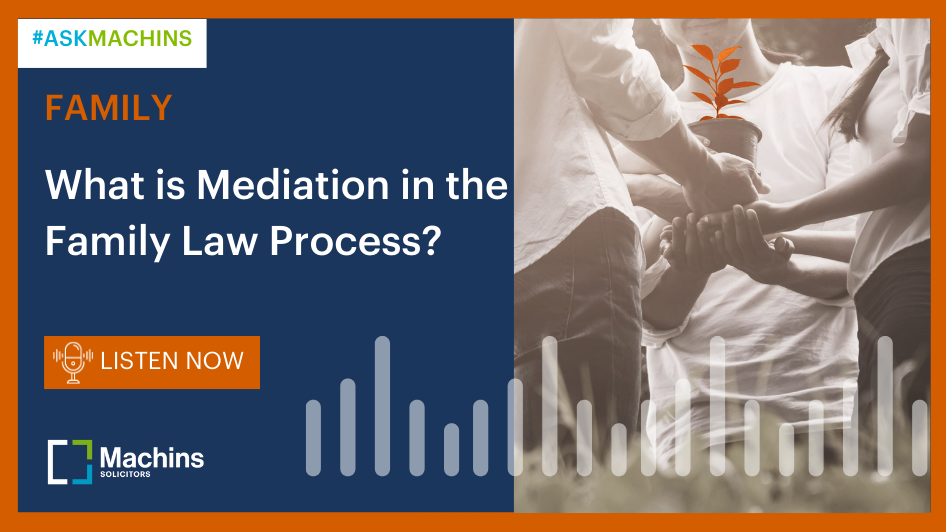Solicitor Negotiation
Sometimes, the best approach is straightforward legal negotiation. Each of you has your own solicitor, and we communicate on your behalf – helping you understand your rights, propose fair outcomes, and work through any sticking points. This can often be done entirely through correspondence or phone calls, and many people reach agreement this way without needing to take formal action. Once you’ve agreed, we can make the terms legally binding through a Consent Order.
Mediation
Mediation offers a calm, respectful space where both of you can sit down with a trained, neutral mediator to talk through your issues and work towards practical solutions – whether it’s about money, children, or your future arrangements. You stay in control of the decisions, and the process is fully confidential. Any agreement you reach can later be made legally binding. In most cases, you’ll need to attend a Mediation Information and Assessment Meeting (MIAM) before you can apply to court – and many people resolve things without needing to go any further. Alongside the mediation process your solicitor will provide advice to assist you in negotiating the best outcome for yourself at mediation and once you’ve agreed, we can make the terms legally binding through a Consent Order.
Collaborative Law
In the collaborative law process, each of you has your own specially trained solicitor by your side, and everyone commits to resolving things without going to court. You’ll all meet together in a series of joint meetings to work through the issues that matter most – from finances to parenting. This approach encourages open, honest conversation and works especially well if you want to stay on good terms or co-parent effectively. If the process breaks down, new solicitors would need to take over if you decide to go to court. Once you’ve agreed, we can make the terms legally binding through a Consent Order.
Round Table Meetings
Round table meetings bring both of you and your solicitors together in the same room – in person or virtually – to talk through your options and work toward agreement. These meetings are informal and cooperative, but still give you the structure and legal support you need. They’re ideal if you want a quicker, more responsive way to move forward than going back and forth through letters. Any agreement reached can be turned into a legally binding Consent Order.
Early Neutral Evaluation (ENE)
ENE is another valuable option for people who are unsure what a court might say – and want guidance early on. In this process, an experienced lawyer, barrister, or retired judge looks at the facts of your case and gives a neutral opinion (usually in writing without meeting either of you) on how a court would likely decide. This can provide clarity and reality-check expectations before spending time or money on more formal processes. ENE is completely private and voluntary, and while the evaluator’s opinion isn’t binding, it often helps people reach a sensible agreement much sooner.
Private Financial Dispute Resolution (FDR)
A Private FDR is a powerful way to settle financial issues in divorce without waiting months for a court date. You and your former partner jointly appoint a senior barrister or retired judge to review your case at private hearing. Your legal representatives will present each of your cases to the “judge” and they will give an expert view on what a court would likely decide. This gives both sides clarity and encourages settlement – often on the same day. It’s private, flexible, and can save time, stress, and money.
Arbitration
If you’re looking for a legally binding decision without the delays, publicity, or stress of court, arbitration might be right for you. It’s a private process where both sides agree on an independent arbitrator (often a senior solicitor/barrister or retired judge) who will listen to your case and make a final decision. It’s quicker, more flexible, and completely confidential. Arbitration can be used for financial matters and some children’s issues, and is ideal when you need certainty – but want to avoid the courtroom.


























